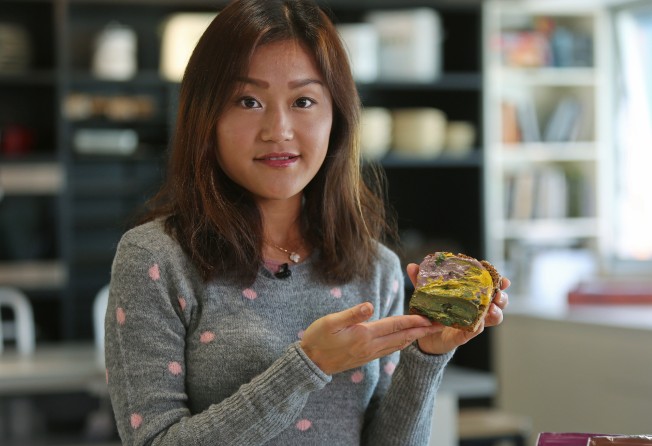
Don’t let them eat cake: mother slaps sweet birthday treats ban on child, sparking Hong Kong online debate over eating disorders
- Social media opinion split as mum forbids her child from eating birthday cake at school
- Some netizens predict ban will lead to eating disorders in later life while experts call for measured approach to the diet of children

A cake is usually the centrepiece of a child’s birthday. But like much of the food served at parties, it has a high sugar content.
And in today’s increasingly health-conscious world, that can be problematic.
Earlier this month a mother set social media abuzz when she uploaded a video in which she said that she and her husband had forbidden their 11-year-old son from eating birthday cake during celebrations at school.
In the video she explained that she doesn’t want her child to associate junk food with celebrations. His teachers have been told to give him fruit instead.

Opinion was divided among parents online, with some supporting the couple’s stance. “Her child, her right to parent the way she sees fit. Not for us to criticise,” wrote one netizen.
Others said depriving a child of cake could lead to eating disorders later in life.
“Forbidding your child from having a slice of cake at a birthday party (and imposing lots of other strict dietary rules, likely, by the sound of your attitude) is begging for problems down the road when your child develops an eating disorder because of the problematic relationship they have with food, that you are fostering.”
It is not the first time news about a cake ban has caused a sugary meltdown.
In 2018, food author, cook, and mum-of-four, Tonia Buxton, made the news when she revealed on a British television show that she had banned her children from eating sugar.

She compared sugar addiction to hard drugs: “Sugar has the same effect as cocaine” screamed the headlines.
In September, US celebrity Kourtney Kardashian spoke publicly about restricting artificial treats for her children, in the name of healthy eating.
But some experts say strict restrictions can backfire and lead to bingeing or fear around food.
Cecilia Cheng, a Hong Kong mum-of-three children, all under eight years old, said parents have every right to have such rules. British mum Sarah Williams agreed, adding parenting styles should not be judged.
They both agreed that it’s important to limit the amount of sugar their children consume.
“There’s a lot of information out there that shows the negative impact sugar can have on a child’s mind and body, so I think it makes sense to have some rules,” said Williams.

Michelle Lau, founder and principal nutritionist at Nutrilicious, a Hong Kong-based nutrition consultancy and communications company, said while eating sweets from time to time is unlikely to cause major problems in the short term, and that it is important to encourage healthy eating habits starting in early childhood.
High sugar intake raises the risk of obesity and chronic diseases such as diabetes, heart disease, and cancer later in life.
“It can also lead to weight gain and increase the risk of the child developing cavities,” Lau said.
“Moreover, when a child fills up on sugar-sweetened foods, they have less room for nutritious options that their growing bodies need, such as fruits, vegetables, whole grains, low-fat dairy and lean proteins.”
In addition, she said, gout and fatty liver disease are associated with excess weight.
As an alternative, Lau said parents could use whole fruit as a sweetener.
“Add a mashed banana to oatmeal, or blend dates into a smoothie,” she said.
“Stevia, monk fruit, certain sugar alcohols, are much lower in calories than table sugar and do not significantly affect blood sugar levels, making them a smart alternative to refined sugar.”
She added that such sweeteners and sugar substitutes are not a magic bullet for health and should also be used only in moderation.
“I would advise parents to tell their children that some foods are everyday foods, while others are ‘once in a while’ foods,” she said, adding this avoids placing a moral judgment on food, but still drives home the message that we shouldn’t have sweets all the time.
“If a child goes to a birthday party or has dessert at their friends’ homes, try not to make a big deal about it,” she said.
“It’s more important to focus on their overall eating habits.”